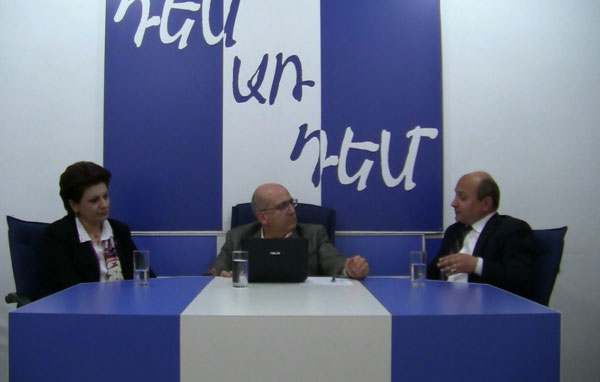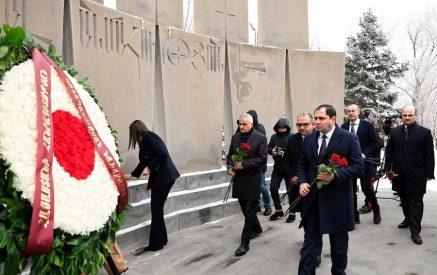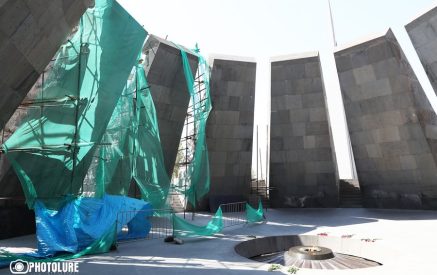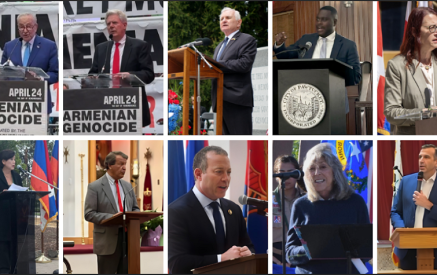“Face to Face” online program of “Aravot” where are debating the National Assembly Deputy Karine Achemyan and the director of the Institute of International and Security Affairs Stepan Safaryan.
Aram Abrahamyan. – We have long lived in the Soviet Union and in the Independent Armenia.
Do you like how we have been commemorating the April 24 so far?
Karine Achemyan. – First, question is weird, it is not the matter of liking or not. I have taken part in these ceremonies since early childhood, my father and my mother had very serious attitude towards that. My family migrated from Van having 11 children, survived only my grandfather and all the 11 children were boys. I have thought about going to Van for many years but I can`t overcome myself. I want to say that we have had a loss, I understand that it is a culture that should be introduced into a child at a very early age, not to mourn the entire year, but you must respect the memory of that day. Although we speak about it not only the very day, we spoke about it in the times of Soviet Union, and now we are talking about it, the more this year, for the 100th anniversary of course, a lot has changed in the life and in the freedom of speech, in the freedom of action because some people are cynical about everything and that has its mark on this day.
A. A-It is clear that we have to go to Memorial on April 24.
What emotions must we have? Must it be an emotion of a victim or must it be pride? Are we proud of the fact that we stood out or that we were killed?
Stepan Safaryan. – You know, actually the feelings are mixed. I guess everyone is trying to figure out what he feels when one goes to Memorial through many years. I would say it is a requiem, just as we were about to visit the graves of our relatives, this day is chosen to visit the graves of those who don`t have brothers, fathers, relatives, there is definitely some element of mourning. But I remember as a child, it would be under Soviet Armenia, or during the reign of independent Armenia, it was also a political act, whether announced or not, you want to be part of the nation while objecting the genocide. Genocide is pain and I must say it’s a shame, because every nation that the crime subjected to, and here, of course, is also thought to have a problem. I do not want to go into the history, discuss mistakes or adverse developments which have taken place in other directions and we were taken to Constantinople.
K.A– A victim’s status as not a good one.
S. S. – Yes. Now I would like to summarize, as I want to respond to the first question. Funeral culture, as we have said, is in every aspect that is to live and remember to face mistakes and maybe even discuss inside you.
A. A-Try to discuss mistakes and you know what will be…
S.S– I am not terrified. I think that our society is gradually being opened, and the way leads to advancing pluralism, polyphony. Funeral culture, let’s say for the sake of justice, not right now and not only corrupted by the commemoration of the Genocide 100th anniversary, just as we distorted to build tombs and headstones, etc..
A. A– Must the 100th anniversary on April 24 be different from the others and why?
K.A-Of course, it must be different. I believe that the program of events, declaration, Pushkin House Museum opening, on the 22-23 is a great forum to be conducted, and in general, the process is done correctly, a complex program is considered, if properly executed, of course, everything will get better, because we have to say a word, and that word is everywhere. Of course, it would be different, because on the 100-year anniversary we shall have many guests from abroad but our major task is not to collect people but have Genocide recognition.
Prepared by Aram Abrahamyan






















































